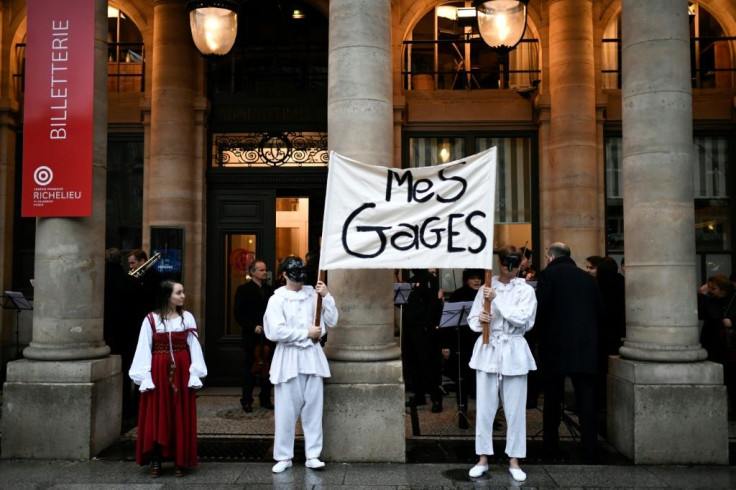'Authoritarian' Macron Under Fire After Pensions Debate Cut Short
French unions and opposition leaders called for fresh demonstrations on Monday after the government employed a rarely used decree to force its controversial pension overhaul through parliament.
Prime Minister Edouard Philippe caught the opposition off guard on Saturday by announcing that the government would pass the pensions bill by executive decree, abruptly ending a bitter parliamentary debate on one of President Emmanuel Macron's signature reforms.
The announcement was slammed by leftist unions and parties as proof of what they see as Macron's authoritarian tendencies.
A group of unions led by the hardline CGT, France's second-biggest, reacted by calling for a new wave of protests Tuesday against the move to fuse the country's 42 different pension schemes into a single points-based system.
In a statement, the unions slammed "the failure of the government to answer the serious and legitimate questions" raised by the biggest changes to the pension system in decades, and called for demonstrations nationwide.
The leader of the hard-left France Unbowed party, Jean-Luc Melenchon, accused the centrist government on Monday of "totalitarian impulses" and also called for protests.
For the leader of the conservative Republicans, Christian Jacob, the government's bid to bypass parliament was proof of the government's "weakness".

The opposition has called for a vote of no-confidence in the government on Tuesday over the issue, but the move is expected to fail given the comfortable majority of the ruling Republic on the Move party.
In that event, the pensions bill will automatically be considered adopted by the National Assembly, the lower house of parliament. From there it will move to the Senate where it could also face resistance.
The pension reforms sweep away dozens of separate pension schemes, some dating back hundreds of years, that offer early retirement and other benefits to public-sector workers as well as lawyers, physiotherapists and even Paris Opera employees.
The government argues the changes are necessary to make the system fairer for all and to erase the deep deficits that have accumulated in recent years as people live longer.
Critics argue the overhaul will force many people to work longer for smaller payouts.

Many details of the reform, including how much a point will be worth, have yet to be determined.
With two months of street protests and strikes failing to force the government into retreat, the opposition took up the baton by filing more than 40,000 amendments to the bill to try to derail it.
"We're going to make life hard for them, that's for sure," Melenchon had warned.
Faced with the guerrilla tactics, the government had hinted it was prepared to use the rare constitutional provision.
But the speed with which it unleashed its powers of decree -- after just 13 days of debate -- caused widespread shock.
The left-wing Liberation daily warned that Macron risked reviving "the authoritarian image of which he had sought to rid himself" in the wake of the yellow vest rebellion of late 2018 and early 2019.
"We were promised a president that would listen more and be less Jupiter-like," Liberation wrote in an editorial.
The conservative Le Figaro daily remarked however that Macron's use of the decree drew inspiration from the Socialists.
The Socialist government of ex-president Francois Hollande used the article to force through labour reforms in 2016 that also sparked street protests.
And reform-minded Socialist prime minister Michel Rocard used the provision no fewer than 28 times during his three years in the post from 1988 to 1991.
With an eye on municipal elections later this month, Macron's government deployed it to overcome what it called the opposition's strategy of "systematic obstruction".
Referring to the first 13 days of debate, during which eight of the bill's 65 articles were debated, Philippe told parliament on Saturday: "Our democracy cannot afford the luxury of such a spectacle."
But public concern lingers over the pension reforms, with 56 percent of voters in an Ifop poll published on February 13 saying they opposed a points-based system.
© Copyright AFP 2024. All rights reserved.





















